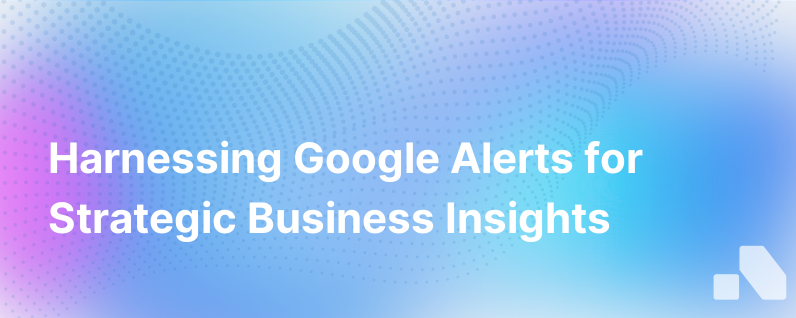
In the fast-paced digital era, staying updated with the latest news, developments, and trends related to your business can be overwhelming. Among a plethora of tools available, Google Alerts stands out as an exceptionally versatile and user-friendly tool to stay in the loop with minimum investment of time and resources.
Google Alerts can be a powerful resource for businesses, marketers, journalists, and consumers keen on keeping an ear to the ground and getting a better grasp of their online environment. In this comprehensive guide, we’ll discuss what Google Alerts is, why it’s important, and how you can make effective use of it.
Understanding Google Alerts
Google Alerts is a content change alert tool offered by the internet giant Google. The service sends emails to users when it finds new content—such as web pages, newspaper articles, blogs, or scientific research—that matches the user's specified search terms.
Using Google Alerts is quite straightforward: you enter a search query you're interested in, and Google will email you when new web content related to your query is published online. The alerts are effectively serving you a customized news feed geared towards your interests and needs.
Importance of Google Alerts
What sets Google Alerts apart is its versatility; it can prove beneficial for various sectors such as businesses, public relations, journalism, blogging, and more.
-
For Businesses: Google Alerts assists companies in maintaining their online reputation by closely watching brand mentions across the web. Furthermore, the tool helps businesses monitor their competitors' activities and stay abreast of developments in their industry.
-
For Public Relations: PR professionals use Google Alerts for media monitoring, tracking press releases, and keeping an eye on industry happenings or legislative changes that may affect their clients or organization.
-
For Journalism and Blogging: Journalists, writers, and bloggers find Google Alerts valuable in unearthing fresh story ideas, staying current on topics of interest, and tracking their bylines across the web.
-
For Consumers: Consumers can use Google Alerts to track product updates, deals, and reviews by setting alerts for their favorite brands, products, or services.
How to Set Up Google Alerts
Setting up Google Alerts is a simple process. All you need is a Google account, and within a few clicks, you can have your alerts running.
- Visit Google Alerts at google.com/alerts and sign in with your Google Account.
- Enter your search term in the text box.
- Click 'Show options' to set alert preferences, such as how often you’d like to receive alerts, the types of sites you want to search, your preferred language, and the region.
- Click ‘Create Alert.’
You can create multiple alerts for different search terms. For entrepreneurs, consider creating alerts for your own name, your business name, products/services, key employees, competitors, and relevant industry keywords.
How to Make Best Use of Google Alerts
While the setup is straightforward, leveraging Google Alerts to its full potential requires some strategy. Here are some tips to receive high-quality, pertinent alerts:
- Use Quotes: If you're looking for an exact phrase or name, use quotes to narrow your search. For example, if you set an alert for "Space X," Google will search for those words together in that order.
- Leverage Operators: Google search operators can help refine your alerts. For example, using the operator "-" (minus) excludes certain words. If you would like to be alerted for Apple - iPhone, Google will send alerts about Apple but omit any content relating to the iPhone.
- Set Proper Frequency: Set the frequency of your alerts according to your needs and the volume of expected results to avoid a potential flood of emails.
Doing these steps right, Google Alerts can become a vital part of your information and strategy arsenal, helping you keep track of critical threads of information while spending minimal time and effort.
Conclusion
As with any tool, Google Alerts' value rests not in the technology itself but how you use it. It can be an effective monitoring tool for businesses, journalists, bloggers, PR professionals, and general users looking to keep abreast of new developments and trends in their areas of interest. With the correct setup and strategic use, Google Alerts can be your digital canary in the coal mine, efficiently tracking the vast online world and delivering relevant, timely, and valuable insights.
However, for more advanced intelligence needs, such as understanding your market and competition, setting up complex keyword trackers along with sentiment analysis and categorizations, you might need a more advanced tool such as Aomni's AI platform. It provides real-time, actionable insights, along with sales content based on the gathered data, serving as a step-up for companies needing a deeper understanding of their business environment.